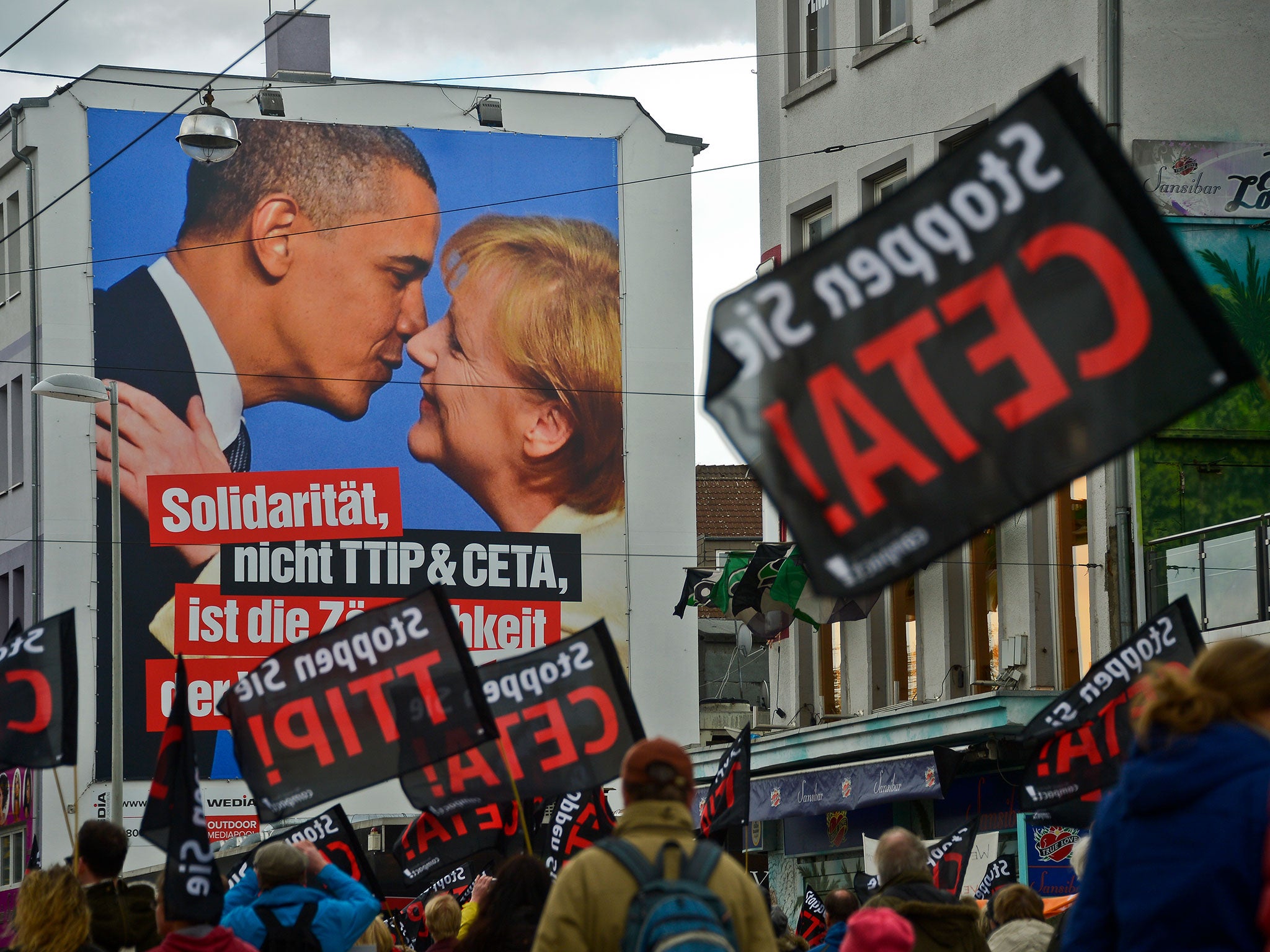Your support helps us to tell the story
From reproductive rights to climate change to Big Tech, The Independent is on the ground when the story is developing. Whether it's investigating the financials of Elon Musk's pro-Trump PAC or producing our latest documentary, 'The A Word', which shines a light on the American women fighting for reproductive rights, we know how important it is to parse out the facts from the messaging.
At such a critical moment in US history, we need reporters on the ground. Your donation allows us to keep sending journalists to speak to both sides of the story.
The Independent is trusted by Americans across the entire political spectrum. And unlike many other quality news outlets, we choose not to lock Americans out of our reporting and analysis with paywalls. We believe quality journalism should be available to everyone, paid for by those who can afford it.
Your support makes all the difference.The French government is to call for an end to negotiations of the controversial Transatlantic Trade and Investment Partnership (TTIP) trade agreement.
The commerce framework, planned between the European Union and the United States, is controversial because its critics say it will hand big business too much power.
Now Matthias Fekl, the French minister for foreign trade, has said his country will call for an end to the deal, potentially kicking it into the long grass.
Mr Fekl told France’s RMC radio station that “we need a clear, clean, definitive stop” to the negotiations.
In a separate speech French president François Hollande said the deal would certainly not be completed before Barack Obama left office.
“France prefers to look things in the face,” he said in a diplomatic speech.
“These discussions cannot result in an agreement by the end of the year. The negotiations have bogged down, the positions have not been respected, the imbalance is obvious.”
In May President Hollande said he would “never accept” the deal in its current guise. He they were too friendly to US businesses.
The latest negative noises emanating from France come just days after Germany economy minister Sigmar Gabriel said talks for TTIP had “de facto failed, even though nobody is really admitting it”.

Some Leave campagners cited TTIP as a reason for Britain leaving the European Union and it is not inconceivable that its unpopularity may have swung the vote.
Critics say one of the main concerns with TTIP is that it could allow multinational corporations to effectively “sue” governments for taking actions that might damage their businesses.
They claim US companies might be able to avoid having to meet various EU health, safety and environment regulations by challenging them in a quasi-court set up to resolve disputes between investors and states.
The UK was seen as one of the strongest supporters of TTIP in the EU, so its departure following the Brexit vote would remove one of the US's closest allies in the talks.
Kevin Smith a spokesperson for campaign group Global Justice Now, which opposes TTIP, said:
“The fact that TTIP has failed is testament to the hundreds of thousands of people who took to the streets to protest against it, the three million people who signed a petition calling for it to be scrapped, and the huge coalition of civil society groups, trade unions and activists who came together to stop it.
“TTIP would have resulted in a massive corporate power grab, and sovereign democracies across the EU would have been deeply compromised.
“We’re still not out of the woods in terms of dealing the EU’s legacy of toxic trade deals. CETA, the free trade deal between Canada and the EU has already been ratified, and if the European Parliament passes it, it will come into effect before the UK parliament has had any chance to vote on it.
“So many of the controversial elements of TTIP would effectively come in through the back door with CETA, and people across Europe are already mobilising in large numbers to stop this attempted corporate coup just like they have done with TTIP.”

Join our commenting forum
Join thought-provoking conversations, follow other Independent readers and see their replies
Comments